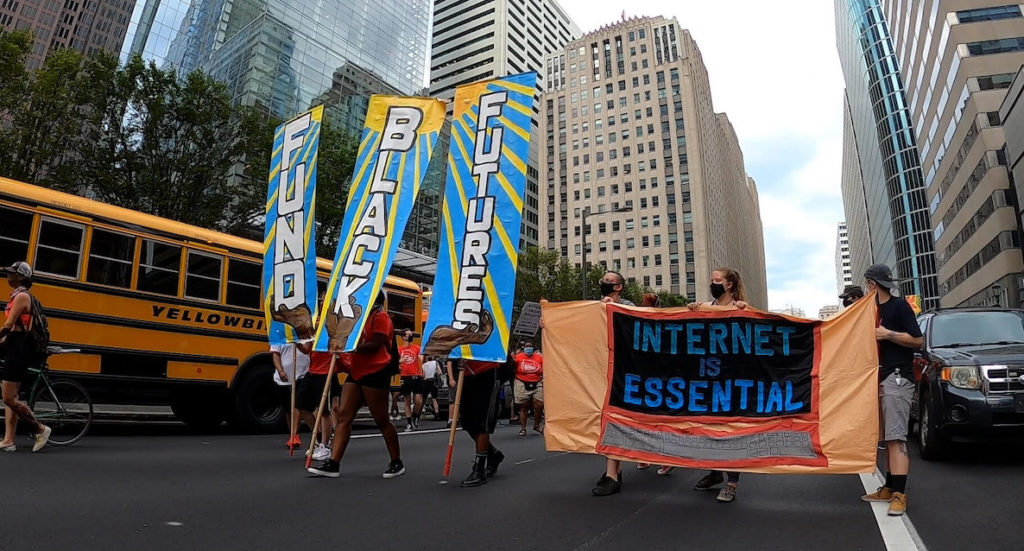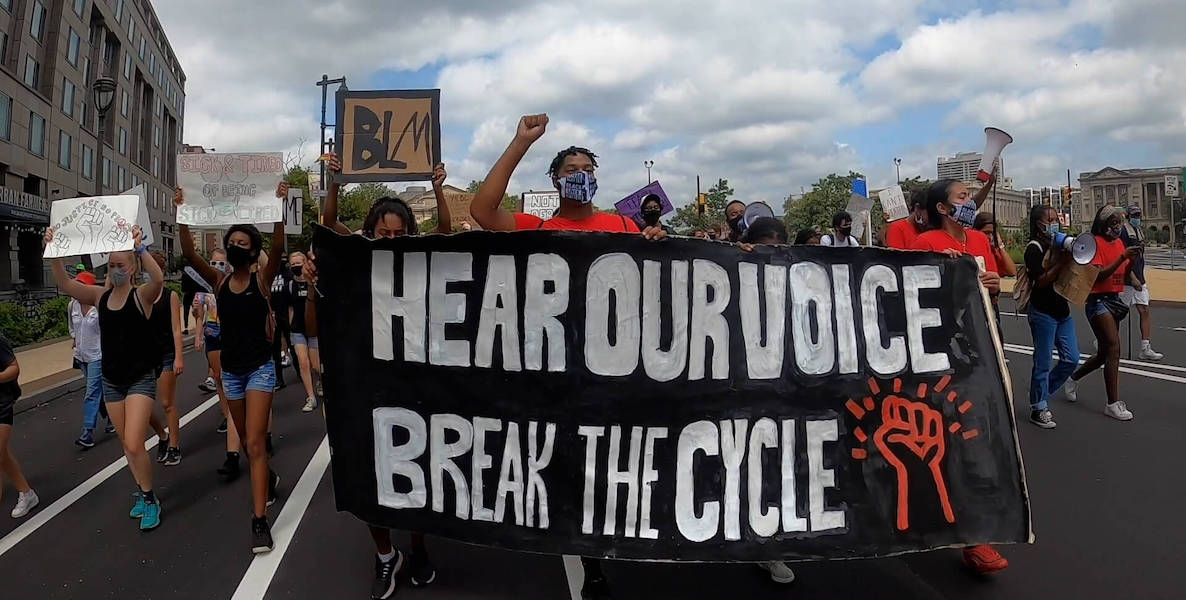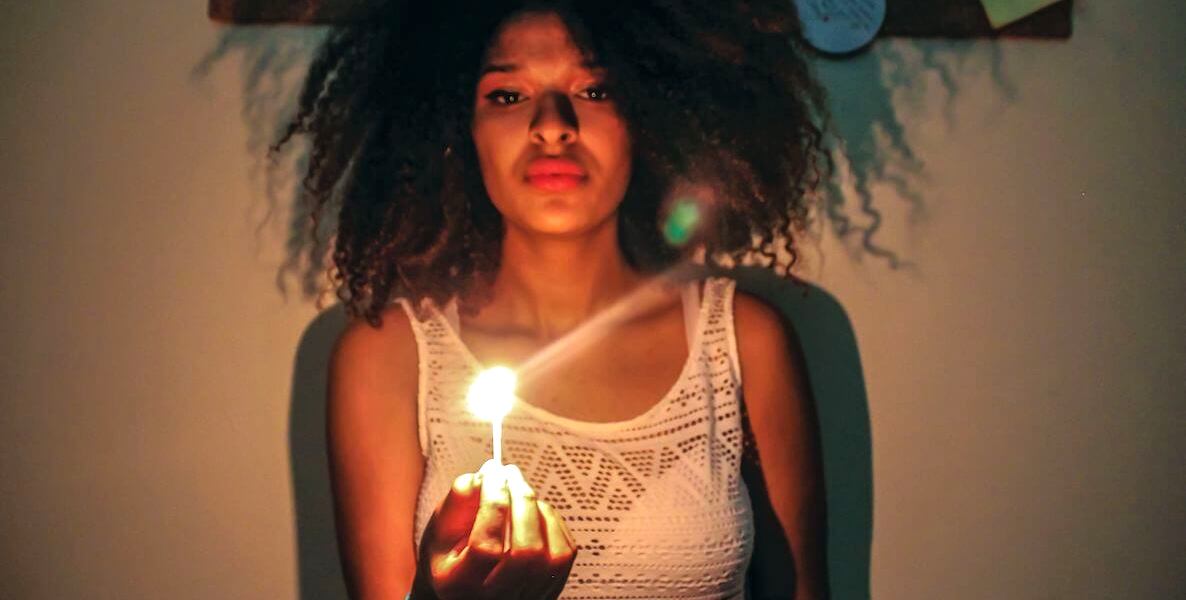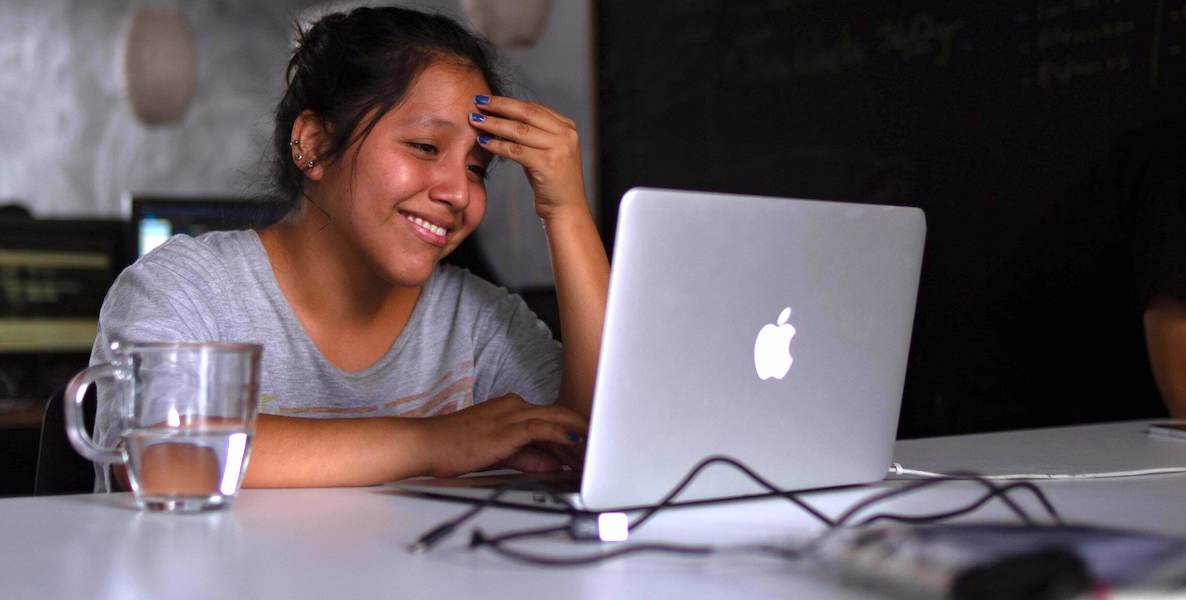Young people are nothing if not resilient, even as a pandemic defines their generation. The latest testament to the flexibility of youth: the cleverly named COmmunity VIDeo Resiliency Project, a screening of more than 20 short films representing the work of over 60 young people from throughout Philadelphia.
![]() Organized by Big Picture Alliance (BPA) and hosted by Via Lux Media Collective, the screening on Friday, February 19, will showcase short documentaries created by youth filmmakers on the theme of resilience. They cover a range of topics such as digital equity, voting, civic engagement, education, social justice, and self-care through the lens of the Covid-19 pandemic.
Organized by Big Picture Alliance (BPA) and hosted by Via Lux Media Collective, the screening on Friday, February 19, will showcase short documentaries created by youth filmmakers on the theme of resilience. They cover a range of topics such as digital equity, voting, civic engagement, education, social justice, and self-care through the lens of the Covid-19 pandemic.
BPA was founded in 1994 as a youth filmmaker apprenticeship program, with a focus on empowering youth through film; since then, the nonprofit has grown to serve over 7,000 young people through partnerships with schools, organizations, and summer programs throughout the city.
Students are provided opportunities to tell stories and explore issues that are important to them and their communities, experiencing all aspects of filmmaking both behind and in front of the camera through collaboratively writing, directing, and acting alongside professional filmmakers.
“It’s hands-on, project-based learning, where you’re learning 21st-century skills and digital literacy,” says Martray., about the student experience in BPA. “But you’re also communicating your voice through research or imagination and celebrating it together with the community.”
Executive Director Aleks Martray has been with BPA since 2013, and is particularly passionate about the “pathway model” BPA follows to nurture and cultivate young people from middle school through high school and beyond.
“It’s hands-on, project-based learning, where you’re learning 21st-century skills and digital literacy,” says Martray. “But you’re also communicating your voice through research or imagination and celebrating it together with the community.”
While students enjoy the freedom to express themselves through imaginative narrative filmmaking, BPA also promotes solutions-based documentaries that don’t just educate viewers about an issue, but propose avenues to address social problems and calls to action.
When Martray took over as executive director in 2017, he was approached by some of the older students and summer participants who didn’t attend the schools where BPA ran programs during the academic year. The experience had such a positive impact that the program alumni proposed a media collective open to all youth in Philly and operated by youth filmmakers.
Their efforts resulted in the creation in 2018 of Via Lux Media Collective; in Latin via lux translates to “street light” a nod to the collective’s mission to shine a light on underrepresented youth voices in Philly. Via Lux produces independent films and mentors young creators along their college and career path. The collective functions as a youth leadership council, co-designing programs and events with the BPA staff and board.
“Because this is a youth organization, we want youth at the table having the conversation. They’re not just participants; they’re co-creators,” says Martray.
For three years in a row, Via Lux has organized its film festival at the Philadelphia Film Society to share and celebrate work by budding filmmakers as young as 10. Youth help curate films, from script to screen, put together social media campaigns, edit the teasers and promos, and host and moderate the events. This year’s pivot to a virtual format was a necessary adaptation—a meta ode to that theme of resiliency.
A process pivot
![]() BPA had narrative films in early production when Covid-19 arrived in the U.S. last February. After a year of writing, casting, and location scouting, the pandemic put an indeterminate halt on those plans. The group began meeting virtually. In the beginning, the goal was to nurture connections and support each other. Eventually, they began to brainstorm how to continue to create under the challenging circumstances. They wrote a screenplay and shot a short fictional narrative they could perform on Zoom while experimenting with logistics.
BPA had narrative films in early production when Covid-19 arrived in the U.S. last February. After a year of writing, casting, and location scouting, the pandemic put an indeterminate halt on those plans. The group began meeting virtually. In the beginning, the goal was to nurture connections and support each other. Eventually, they began to brainstorm how to continue to create under the challenging circumstances. They wrote a screenplay and shot a short fictional narrative they could perform on Zoom while experimenting with logistics.
“At first, no one wanted to make films [about] Covid,” recalls Martray. “It was too soon, too intense. But [by] the time summer rolled around, students felt they not only had an obligation, but were really interested and invested in exploring how our communities were coping through the pandemic.”
The youth filmmakers saw an opportunity to create documentaries that would also share information and resources. Despite being stuck at home, they connected with community organizations across the city who were working to uplift others and saw the resiliency inherent in the fight for social justice. “If during a pandemic and a political crisis we are not going to deal with racial injustice and inequity and healthcare and education and all of these things, then when are we going to do it?” Martray says. “If this an opportunity, can we turn this opportunity into making lasting, systemic change?”
BPA sent cameras, sound equipment, and laptops home to the students, ensuring everyone had the internet access and software they needed. Students chose their own topics and developed pitches for the group that laid out their outreach plans, source material, and community partners. Youth creators collaborated virtually with peers, mentors, and community organizations, conducting interviews via Zoom, and organizing safe sourcing of footage to capture the protests and rallies and editing from home.
The youth lens

Michelle Wu, a 20-year-old Temple student, is one of the founding members of Via Lux. Her film, A Side of Light, explores the racism and xenophobia targeted at the Asian community during the pandemic, and the community organizations trying to keep people safe.
“I thought it was important to tell this story, specifically in Philadelphia,” Wu says. “I turned to organizations like Asian Americans United with the help of Via Lux, and I found out a lot of those organizations have been doing this work but haven’t been getting the spotlight they needed. I felt that those communities out there are doing something amazing, and it’s important to showcase that.”
Nasya Jenkins, 23, directed the film From Digital Divide to Digital Equity, highlighting digital inequity in Philly. “As we were brainstorming ideas at the collective, the one thing that kept coming up that was a real common problem was a lack of internet. We need to talk about it.”
Jenkins had to source footage from the protests and rallies taking place in the fight for digital access over the summer while conducting interviews over the phone and Zoom. “A lot of the footage that we shot for the film had been collected throughout all the events that had happened over the summer, or b-roll footage that we got on our own.”
![]() “We also hired a videographer for my film because I needed to get shots of Chinatown and other specific places, and I couldn’t personally go there,” adds Wu. “In my community, I took photos of some of the murals you see and incorporated some digital aspects. Some of the drawings you see are handmade by me. Even though Covid is restricting some things, it can still expand our creativity. That was something I tried to do, even though there were limited resources.”
“We also hired a videographer for my film because I needed to get shots of Chinatown and other specific places, and I couldn’t personally go there,” adds Wu. “In my community, I took photos of some of the murals you see and incorporated some digital aspects. Some of the drawings you see are handmade by me. Even though Covid is restricting some things, it can still expand our creativity. That was something I tried to do, even though there were limited resources.”
The big picture
The Covid Resiliency project is more than just a screening of youth films. The solutions-based documentary approach hinges on calls to action. The discussion following the screening will include the community partners involved in the project and is centered around keeping the conversation going, and making progress on issues important to the young filmmakers.
“When we do a documentary project like this, we really see screenings as a moment to not only amplify youth voices but also spark discussion and hopefully spark actions around these issues,” says Martray. “That was really intentional about this project, was not just to distribute the films but find opportunities to have them be conversation starters.”
In marketing the films, Via Lux reached out to their peers through weekly webisodes, social media campaigns, and TV broadcasts to share resources for youth to get online for school, access healthcare aid, and even register to vote. For the film From Digital Divide to Digital Equity, the release and social media campaign coincided with Comcast and Philly public schools’ joint initiative. Via Lux used the opportunity to share the PHLConnectED program with their young audiences, helping them sign up to access free internet and technical support as the new school year began.
“When we do a documentary project like this, we really see screenings as a moment to not only amplify youth voices but also spark discussion and hopefully spark actions around these issues,” says Martray.
Another BPA project in the works that will be introduced at the screening is a series of films on the theme of misinformation and disinformation. Currently in production, the project includes a three-part documentary about history, current events, and how to address misinformation and disinformation.
Youth filmmakers are also working on short narrative films that explore the theme through creative fiction. The goal of the series is to encourage a more effective rollout of the Covid vaccine by battling misinformation and providing the public with tools to get accurate information and learn the basics of fact-checking.
Wu summarizes her message by saying, “This is an Asian-American piece, but it’s not just for Asian Americans. I want this piece to talk to other communities about how we have to stand together and that it’s really important how we have to defend one another.”
Jenkins has set herself on a path to continue to make art, specifically in film. For her, making movies is a means to provide people who aren’t heard with a platform. “People definitely need more opportunities to get their voices heard as far as what they need in society economically, educationally, and personally,” she states. “People definitely need to be more open-minded when hearing other people’s needs, and not to put their needs before others.”
Friday, February 19, 6pm, with the discussion to follow at 7pm. The community organizations in attendance will include PhillyTechJustice, Philadelphia Student Union, Racial Justice Organizing Committee, Asian Americans United, Modero & Company, Vote That Jawn, Young Philly Artists, OIC Workforce Academy, and Rosemont College. To register for the event, visit crowdcast.io/e/covidresiliencyproject.
Header photo shows a scene from Nasya Jenkins' From Digital Divide to Digital Equity





